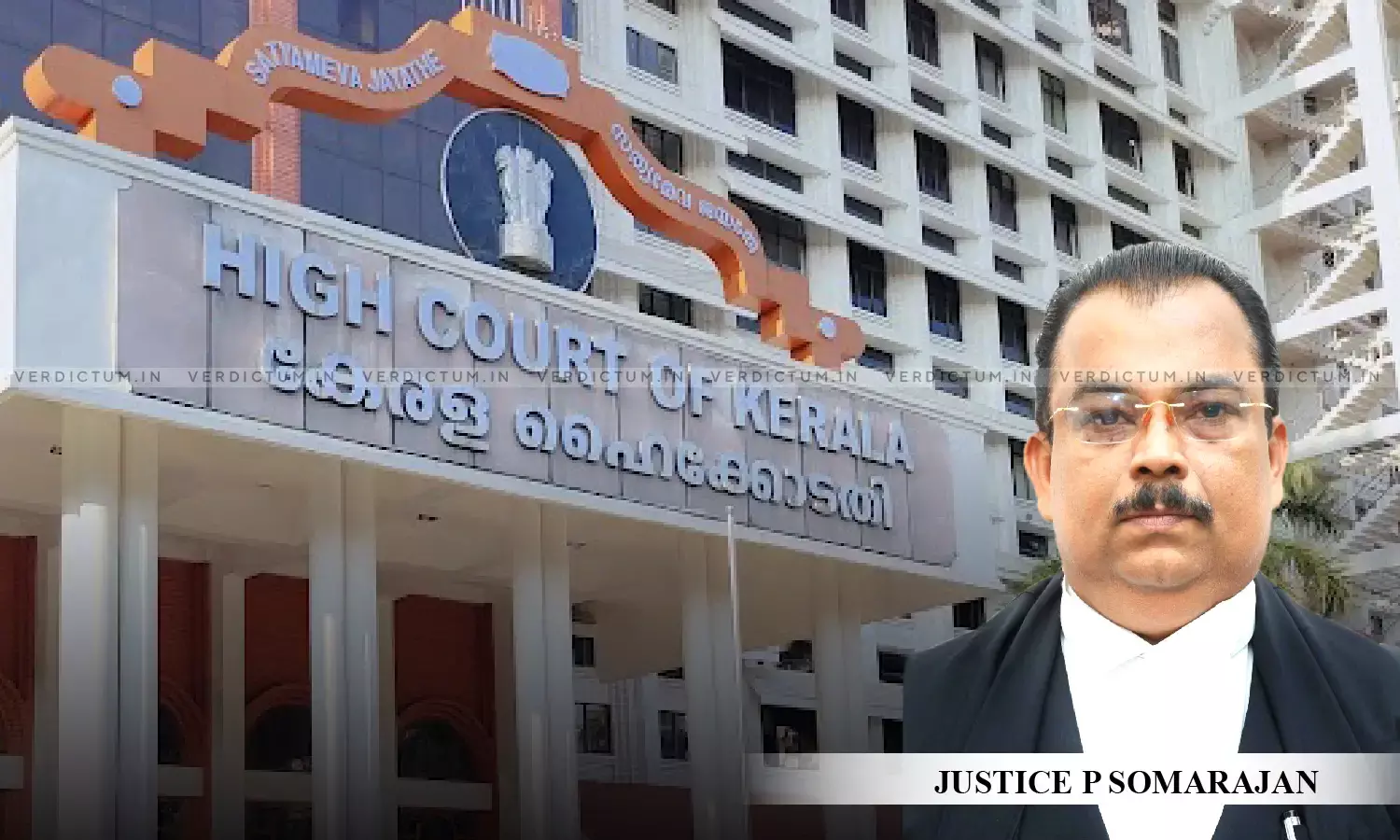Mere Questioning By Court & Recording Answers Is Not Sufficient To Comply With Mandate Of 'Enquiry' Under Second Limb Of Rule 15 Of Order XXXII CPC: Kerala HC

The Kerala High Court clarified that Rule 15 of Order XXXII CPC requires a distinct 'enquiry' process to determine mental infirmity or incapacity when a suit is initiated through a next friend or court guardian. The Court said this rule distinguishes between individuals judicially adjudged as "of unsound mind" and those "incapable of protecting their interests due to mental infirmity." The case involved a suit filed by a mentally unsound individual, represented by a next friend as required by Order XXXII CPC. During the ongoing suit, the mentally unsound plaintiff expressed unwillingness to proceed with the case through an application.
The Court observed, "Necessarily, mere questioning of the petitioner/plaintiff by the court and recording of answers alone is not sufficient to comply with the requirement of an enquiry as mandated under the second limb of Rule 15 of Order XXXII CPC."
In response, the trial court had conducted an 'enquiry' into the mental capacity of the plaintiff, asking questions and recording answers. Based on certain irrational answers, the court had concluded that the plaintiff was incapable of handling his affairs due to mental incapacity and dismissed the application. Thus the instant revision was filed against this decision.
A Bench of Justice P. Somarajan held that the trial court's conclusion that the plaintiff was incapable of protecting his interests based solely on some irrational answers deemed insufficient. The Bench said that trial court should have adopted a more pragmatic approach, including seeking expert medical opinions, if necessary, to assess the plaintiff's mental capacity comprehensively. The Court added, “In the instant case, no such enquiry was conducted by either referring the petitioner to a Medical Board or for an expert evidence or by calling upon medical records, if any available, but simply jumped into a conclusion on examination of the petitioner by the court and found that he is not capable of protecting his interest simply on the reason that certain answers were found to be not rational.”
Advoacte G.S. Reghunath appeared for the Revision Petitioner and Advocate Ajit G Anjarlekar appeared for the Respondents.
The main issue before the Court was the scope of 'enquiry' as specified in Rule 15 of Order XXXII CPC.
The Court explained Rule 15 of Order XXXII CPC mandates an 'enquiry' to ascertain alleged mental infirmity or incapacity when a suit is brought through a next friend or court guardian. The rule distinguishes between two categories: 'a person adjudged of unsound mind' and 'a person incapable of protecting his interest by reason of any mental infirmity.'
The Court further stated that first category applies to those who have been judicially adjudged as of unsound mind through a court inquisition. This does not involve any further inquiry or interference by the court, as the adjudication itself is sufficient for granting permission to sue through a next friend or appointing a court guardian.
The Court added that the second category applies when there is no prior adjudication, allowing the court to consider whether the person is incapable of protecting their interests due to any mental infirmity, including mental retardation, mental ailments, or other disorders affecting their ability to make rational decisions. This category permits the court to conduct an enquiry, obtain expert opinions, or refer the parties to a Medical Board if necessary.
The Court noted that in the case at hand, no judicial inquisition had occurred, and the matter fell under the second category of Rule 15.The Court said, “In the instant case, no judicial inquisition proceedings were initiated and no adjudication was rendered adjudging the plaintiff/petitioner as a person of unsound mind. Hence, the matter would fall under the second limb of Rule 15 of Order XXXII CPC wherein the mandate of conducting an enquiry and rendering a finding cannot be avoided.”
Furthermore, it was noted by the Court that the plaintiff had passed away after the application's dismissal. The Court said that the authority to continue with the suit through the next friend would cease with the plaintiff's death unless the next friend succeeded through legal means, such as intestate or testamentary succession. The Court said, “It is up to the legal heirs to be impleaded in the suit, if they are desirous of continuing the suit, but subject to the law of limitation and the application of Section 5 of the Limitation Act. Hence, it is left open.”
Ultimately, the revision was allowed, and the Court set aside the earlier decision. The matter of proceeding with the suit after the plaintiff's death was left open for consideration by the legal heirs, subject to the applicable laws of limitation and Section 5 of the Limitation Act.
Cause Title: Gopakumar v. Madhusoodanan Nair & Anr., [2023:KER:54001]
Click here to read/download Order


